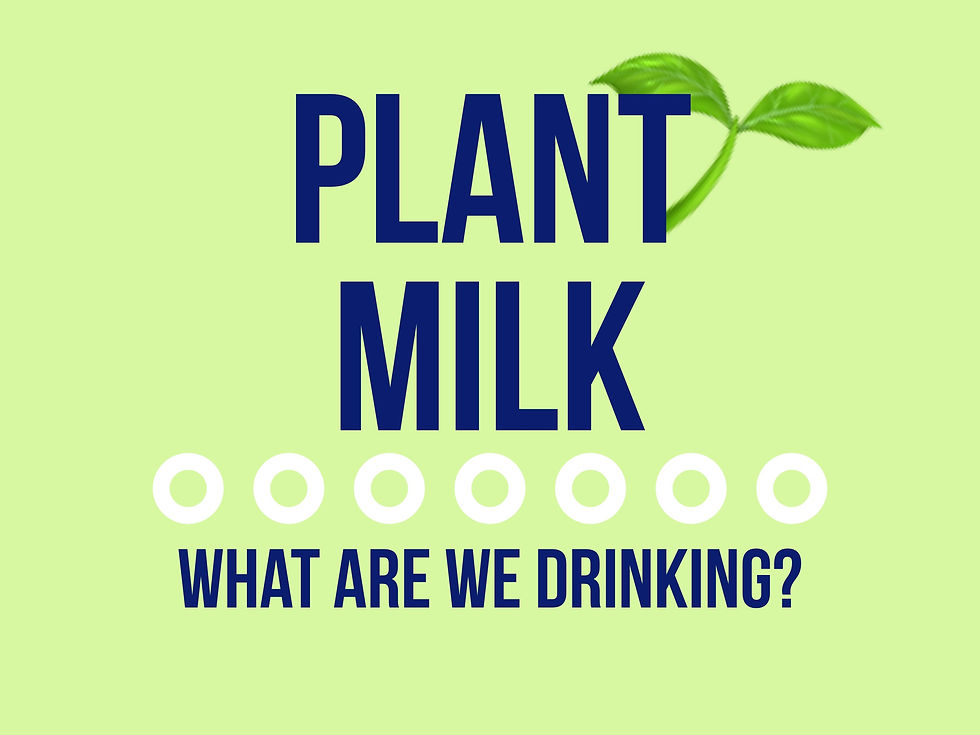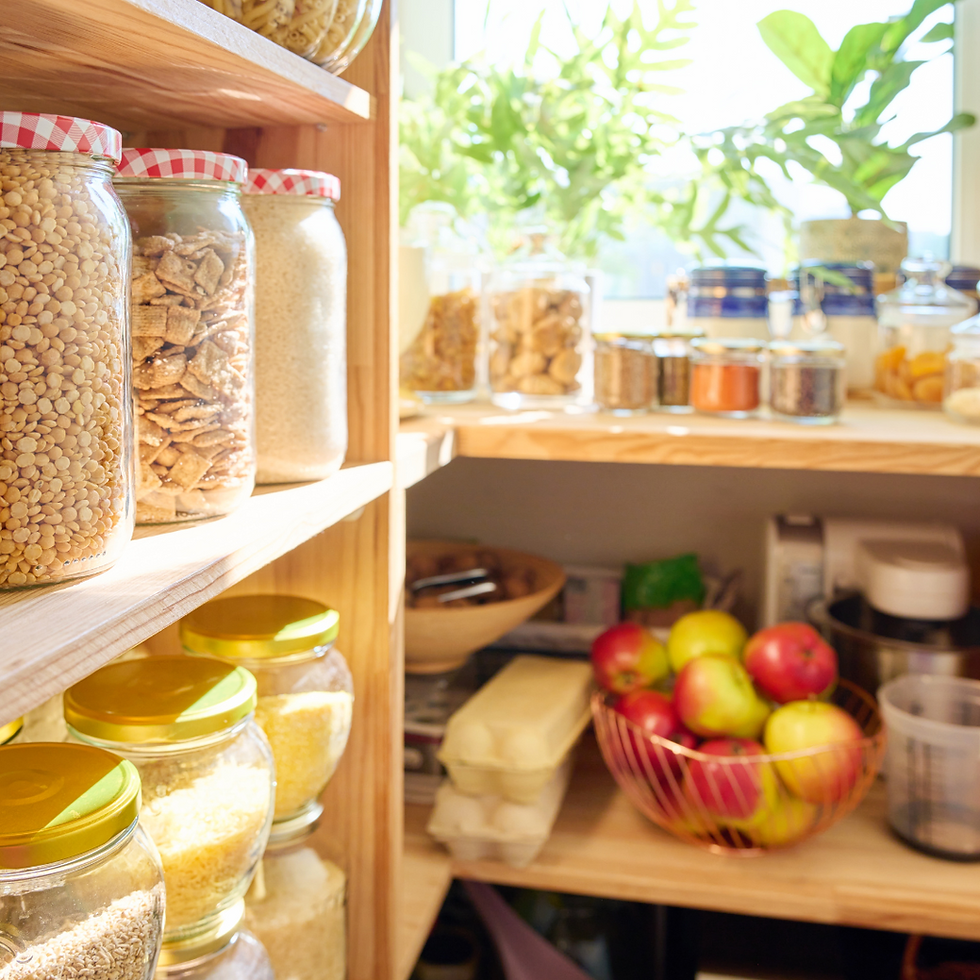What's in the milk?
- Meat Is My Ex
- Jun 14, 2021
- 3 min read
Our little one mainly drinks water and cold pressed drinks that we make at home. Since she is still nursing plant milk is not something she drinks regularly so it was something we did not give much thought to. Our go to when cooking is typically EDEN SOY, as it contains only water and soy, and that is if we have not made the milk at home ourselves, but we were recently asked about what milk choices to consider and decided to dig deeper into what we were actually consuming.
The plant-based lifestyle is one that has taken off in the last 5-10 years. Many individuals have cut the consumption of milk from their diets and are turning to alternatives in the plant based sector. Companies have taken notice to this as well providing us with a plethora of alternatives to choose from, but what all are they made of?
In doing this research I came across three ingredients that although are approved in the U.S for consumption caused me to raise my eyebrows. The first one being. Calcium Carbonate.
Calcium Carbonate
Calcium Carbonate caught my attention because of the ways that it can be sourced. In a vegan product the calcium carbonate would obviously come from a source that does not stem from an animal, but in a plant based product that does not have to be the case. Some companies derive their Calcium Carbonate from animal bones, so it is important to differentiate where this specific ingredient is sourced in order to ensure a product fits your vegan lifestyle.
Dipotassium Phosphate
Dipotassium Phosphate is an inorganic compound often used as a buffering agent, food additive, fertilizer, and even used in antifreeze. For someone in good health this ingredient poses no threat, but for someone with preexisting conditions such as thyroids, kidney disease, heart , and lung illnesses it can be potentially harmful, with side effects potentially consisting of ; nausea , vomitting, diarrhea, joint pain, dizziness, muscle pain, increased thirst, and nubmness. These side effects are considered rare, but worth mentioning none the less.
Soluble Corn Fiber
The final ingredient we will mention is Soluble Corn Fiber. Soluble corn fiber is defined as a "nondigestible carbohydrate". It provides sweetness and thickens food without adding sugar or calorie intake of processed foods. It is also referred to as resistant maltodextrin (maltodextrin is closely related to corn syrup, and typically derived from Genetically Modified Plants) It is important for individuals with diabetes to stay away from this ingredient as It can potentially cause a spike in blood sugar. Other potential side effects include; blurred vision, fatigue, trouble concentrating, and increased thirst (ironic for it to be in a beverage).
All in all the point of this article is just to inform us of the impact those big words in the ingredient lists have on our lives. Always understand that you do not need to be perfect to be healthy so moderate consumption can still lead to a healthy lifestyle. It is important to understand what it is that you are wanting to gain from making the switch to a vegan lifestyle. With so many brands on the market and wanting to beat cost of competitors it is almost imperative that we pay attention to what it could potentially cost us as consumers. If you are looking to switch due to health reasons or looking for milk alternatives for your toddler (over age of one) the best option may be homemade milk, or plant milks with as few ingredients as possible. Check out BEING RAISED VEGAN on instagram for recipe on how to do so.
A few other products these ingredients can be found in:
Sports Drinks
Meat to preserve
Fruit Juices
Energy Drinks
Pasta
Frozen Meals
Soups
Salad Dressings
cooked cereals
rice
REFERENCE LINKS:
https://www.webmd.com/drugs/2/drug-11056/potassium-phosphates-mbasic-and-dibasic-oral/details/list-sideeffects
https://www.healthline.com/health/is-disodium-phosphate-bad-for-you#What-is-it?
https://www.healthline.com/nutrition/soluble-corn-fiber
https://www.healthline.com/health/food-nutrition/is-maltodextrin-bad-for-me#when-to-avoid-it




Comments